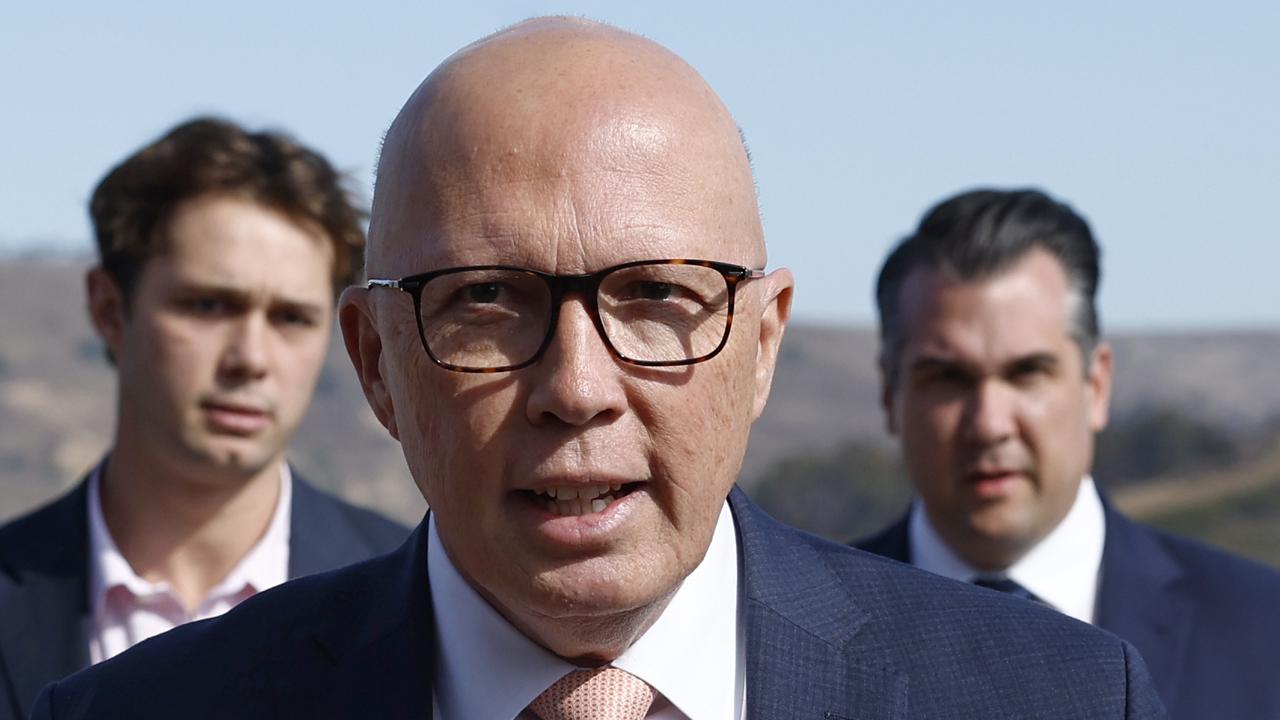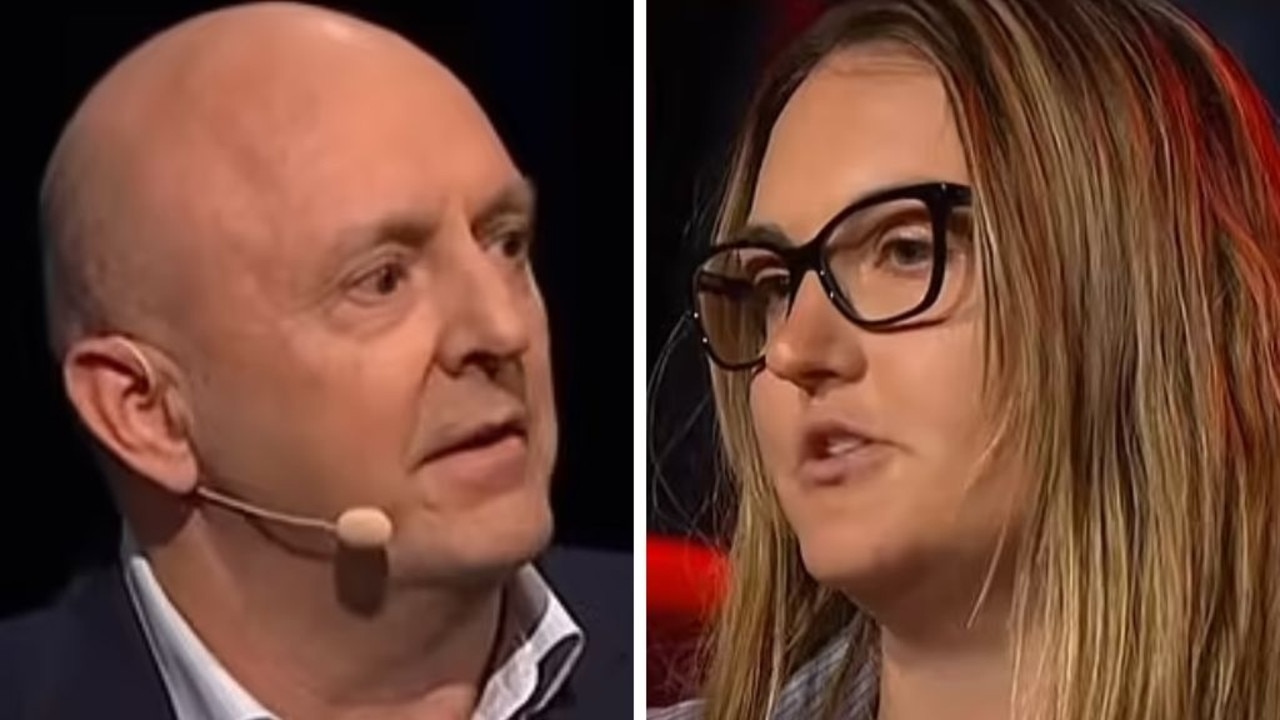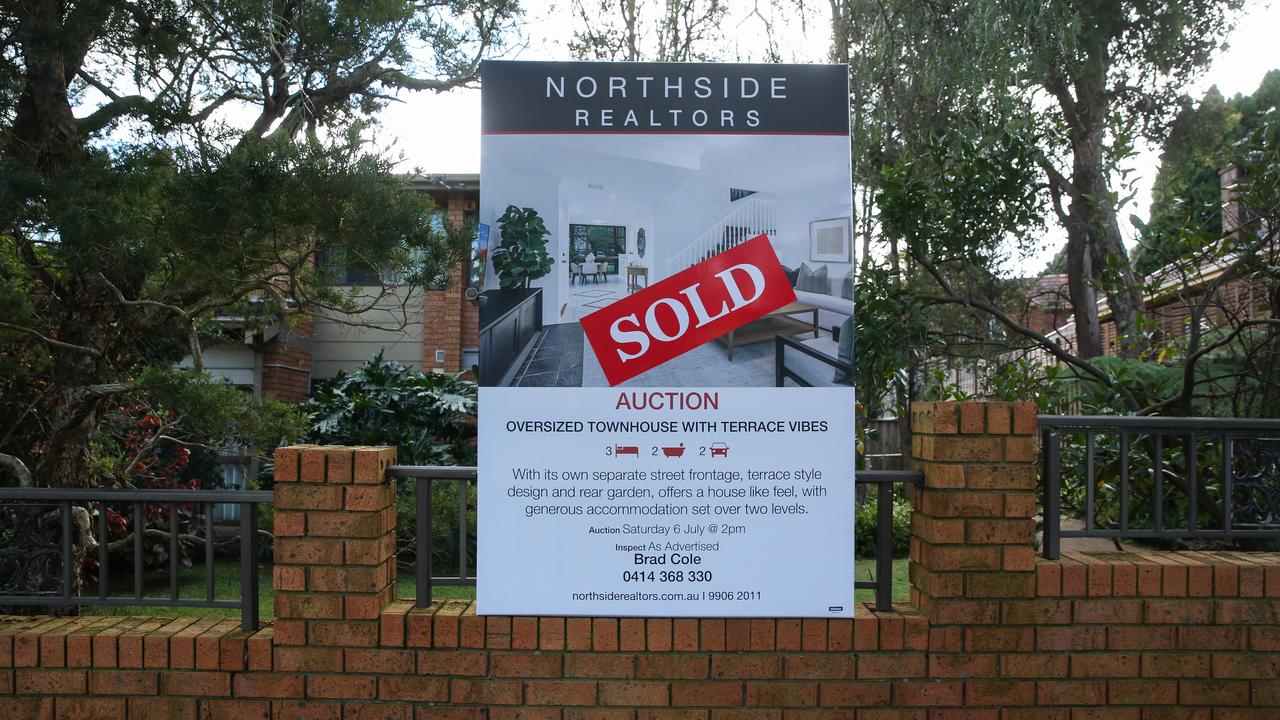The Voice referendum live updates: Triple J host’s protest live on air
An Indigenous radio host issued a blunt, emotional statement about the Voice result before playing one song on repeat for an hour.
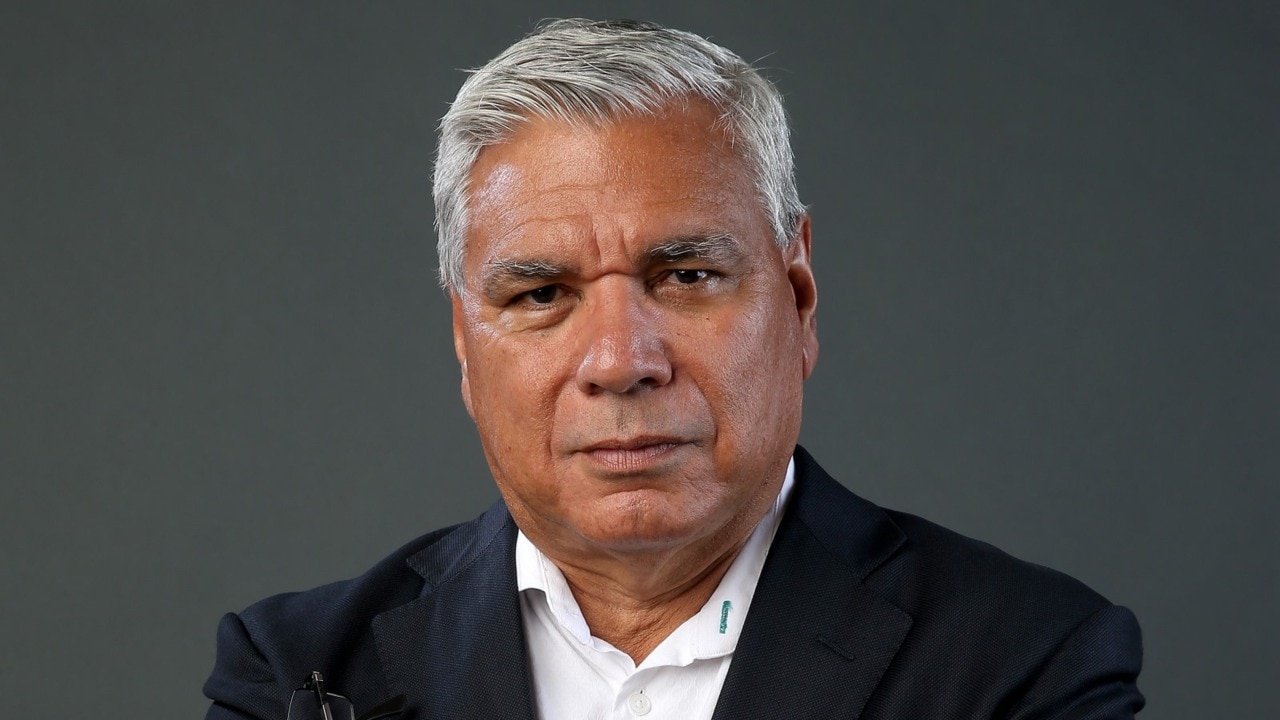
Welcome to our live coverage of the day after the Voice referendum.
There’s been an emotional reaction across the country after Australians resoundingly voted No in the poll on Saturday, leaving Prime Minister Anthony Albanese to attempt to pick up the pieces.
Continue reading for all the major news and talking points on Sunday.
Triple J’s Voice protest live on air
ABC’s triple j radio station played Yothu Yindi’s protest song Treaty on repeat for an hour on Sunday evening.
The song was played for the duration of rapper Nooky’s all Indigenous music show Blak Out between 5pm and 6pm.
“October 14 was a moment in history where a dark cloud will forever cast a shadow,” Nooky, a proud Yuin and Thunghutti man, said at the start of the show.
“I feel like I let down my elders, I feel like I let down the future generations. Last night was the most overt, unconcealed manifestation of racism I’ve ever experienced in my whole life.
“Yesterday they said our pain and our suffering continues. The disadvantage and the inequality continues. But so does our love, our happiness, our strength and our pride.”
Nooky, who is a father, said it was the kids who held “the power to heal and the power to bring change”.
“When I look at them I see the hope that hasn’t died and in this moment I’m broken but I’m not defeated, and regardless of yesterday’s outcome, there’s always work to do. It’s just now clear how much work there is to do.”
Nooky said the message was: “We will not sit in silence, they will hear us as we rejoice as a people and light our sacred fire in the face of their broken promises.”
Treaty was first released in 1991 with lyrics that were in response to then prime minister Bob Hawke’s broken promise of a treaty between the Australian Government and Indigenous Australians.

The hour was concluded with a snippet of the emotional speech given by Indigenous Australians Minister Linda Burney on Saturday night.
“And to all Aboriginal and Torres Strait Islander people, I want to say this: I know the last few months have been tough,’’ she said.
“But be proud of who you are, be proud of your identity, be proud of the 65,000 years of history and culture that you are part of, and your rightful place in this country.”
Treaty was the first song in an Aboriginal Australian language to have such national and international commercial success.
A popular remix saw it peak internationally at number six on the Billboard Hot Dance Club Play singles chart.
According to triple j, Treaty was one of, if not the most played song on the station in the 1990s.
PM’s tactical failure on full display
Anthony Albanese started and ended his campaign for the Voice in South Australia, but the state turned out to have the second-biggest No vote in the country.
All 10 of the state’s federal electorates voted against the Voice, with the mega electorate of Grey having a huge 78 per cent of people vote No.
Back on August 30, Mr Albanese arrived to a thunderous applause at the Playford Civic Centre in the working-class Adelaide suburb of Elizabeth to kick off the six-week referendum campaign.
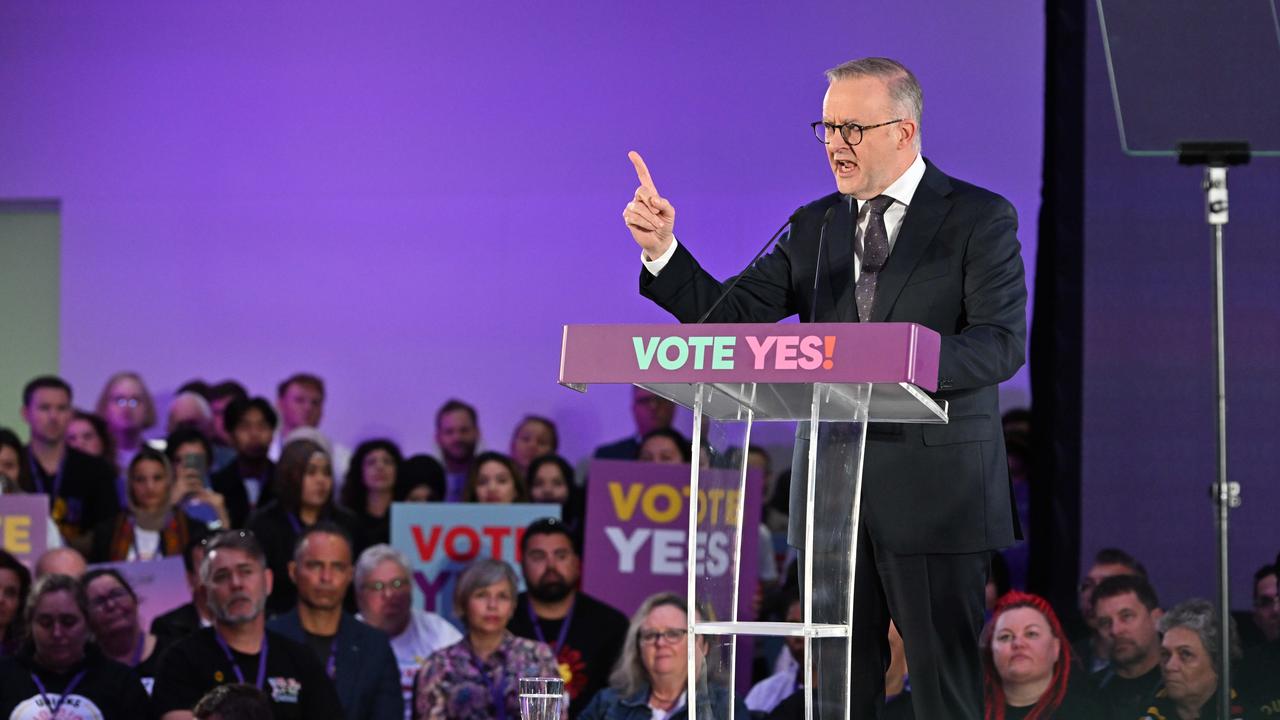
At the time, South Australia was expected to be a key battleground and opinion polls earmarked the state for a tight race.
A survey of 605 South Australians by think tank The Australia Institute suggested the Yes vote had the upper hand in the state, 43 per cent to 39 per cent.
One in five South Australians (18 per cent) remained undecided, according to the polling.
Flash forward to the day before the vote on Friday and Mr Albanese was back in Adelaide for his final pitch to the people of South Australia.
But despite the efforts, Mr Albanese failed to win over SA voters.
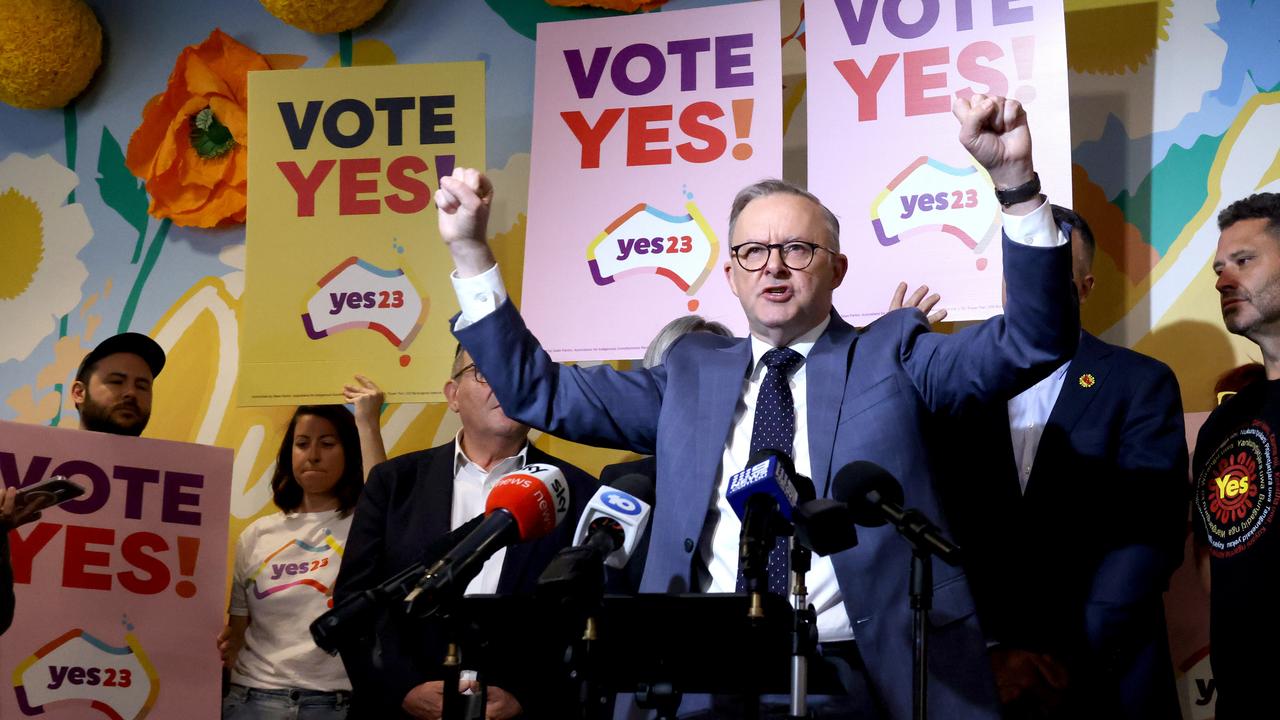
As of 4.30pm Sunday, the statewide result stood at 35.50 per cent Yes and 64.50 No.
The federal electorate of Spence, where Mr Albanese launched the Yes campaign, stood at 72 per cent No.
Elsewhere in the state, the electorate of Adelaide stood at 60 per cent No, Barker at 78 per cent No, Boothby at 52 per cent No, Grey at 78 per cent No, Hindmarsh at 62 per cent No, Kingston at 65 per cent No, Makin at 68 per cent No, Mayo at 60 per cent No, and Sturt at 58 per cent No.
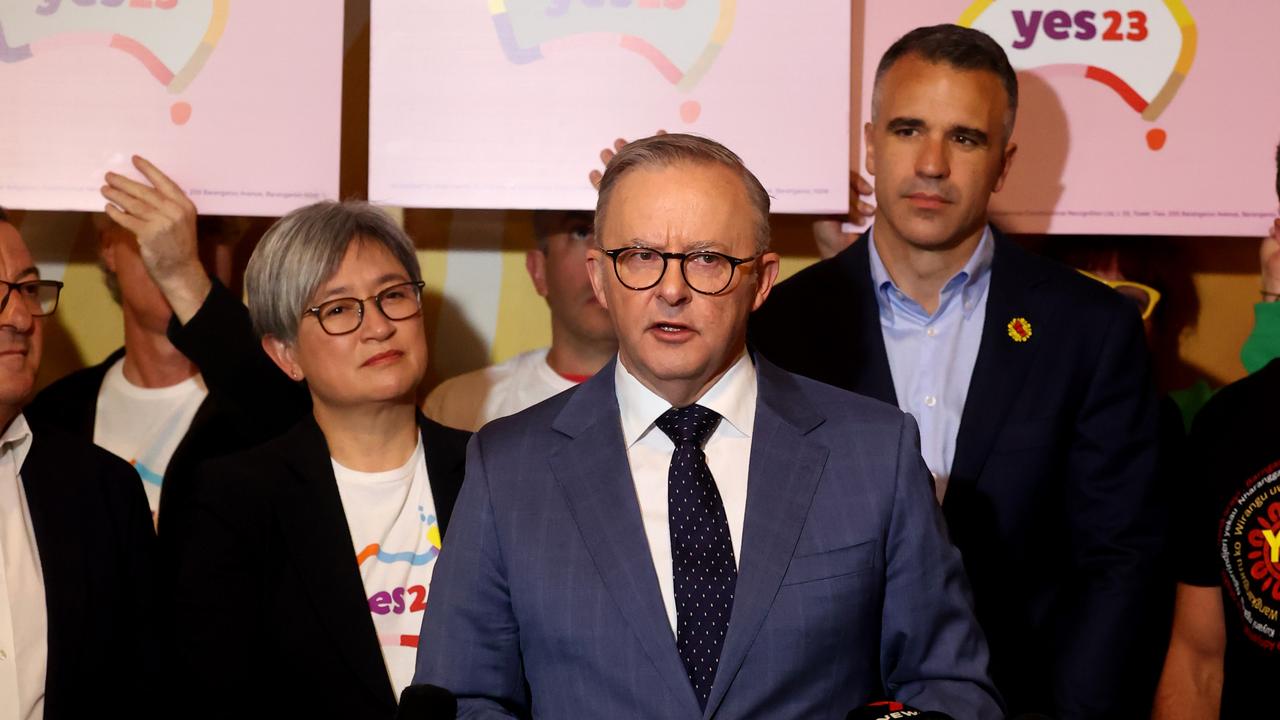
South Australian Premier Peter Malinauskas has already legislated a state-based implementation of the Uluru Statement from the Heart – Voice, Treaty and Truth.
The SA Voice will not have any powers to veto legislation or stop Parliament undertaking its duties and functions, but it can engage with the South Australian Government, including Cabinet, Cabinet Ministers, and Chief Executives of government departments.
It will meet with the SA Cabinet at least twice per year.
So advanced is the introduction of the Voice in South Australia that the inaugural First Nations Voice election will be held on Saturday 16 March 2024.
Labor MP blasts Yes campaign
Labor MP Mike Freelander has taken aim at the Yes campaign for being too focused on “inner-city elites”.
“I think the campaign was mainly focused on the inner city and inner city elites in particular, people were in an echo chamber and having big inner city rallies totally misses the point,” Dr Freelander, who represents the south-western Sydney seat of Macarthur, told The Australian.

Criticising the campaign to the newspaper, he said: “The idea that the campaign was supposed to be a-political and run by a separate group from the government was crazy because you’ve got a group of people trying to run what was essentially a political campaign with no campaigning experience and the polls have been going down for months and months and yet people were still campaigning to the elites and feeling very good about it without actually looking at what was happening.”
As of 6pm Sunday, 65 per cent of voters in Macarthur had rejected the Voice.
Dr Freelander said he had to take “some of the blame for what happened” in his electorate.
Aussies believe Albanese bungled the Voice
News.com.au asked Australians whether they thought the government had bungled the Indigenous Voice to Parliament. And the response has been emphatic.
By 2.30pm on Sunday, more than 19,000 people agreed there wasn’t enough information early on, while less than 3000 people agreed Australians were kept informed throughout the process, according to a reader poll with more than 22,000 votes.
Results in a second poll show Australians put the blame for the referendum’s failure specifically on Anthony Albanese.
More than 25,000 have said the Prime Minister should accept responsibility for the outcome, while less than 3500 Aussies said he shouldn’t accept responsibility.
There’s more bad news for Mr Albanese. According to RedBridge Group director Kos Samaras, the Voice was a massive flop for Labor faithful, too.
“Close to 80 per cent of Labor federal seats voted No,” Samaras posted on X, formerly Twitter, on Sunday.
“Remove the ACT and Labor/Greens contest seats and that number climbs to 90 per cent. These numbers may get worse with one or two seats which a line ball in front on the Yes vote.”
Close to 80% of Labor federal seats voted No. Remove the ACT and Labor/Greens contest seats and that number climbs to 90%.
— Kos Samaras (@KosSamaras) October 15, 2023
These numbers may get worse with one or two seats which a line ball in front on the Yes vote.
In an emotional speech on Saturday night, Mr Albanese said he never imagined it would be easy to secure a victory but conceded he was disappointed by the result.
“My fellow Australians, at the outset, I want to say that while tonight’s result is not one that I had hoped for, I absolutely respect the decision of the Australian people,’’ he said.
Mr Albanese said he promised “we would go all in, that we would try” and said that’s what his government had done.
“We have given Aboriginal and Torres Strait Islander people the fulfilment of their request that we take forward an idea that had been decades in the making, and we would give the Australian people the opportunity for them to decide for themselves,” he said. “We have kept that promise.”
He added: “As Prime Minister I will always accept responsibility for the decisions I’ve taken and I do so tonight but I do want Australians to know I will always be ambitious for our country.”

When asked why the No vote won, Mr Albanese appeared to lay the blame at the feet of the Liberal Party.
“The analysis will go on for some time, no doubt. But the truth is that no referendum has succeeded without bipartisan support in this country,’’ he said.
On Sunday morning Deputy Prime Minister Richard Marles said the government took responsibility for the failure of the Voice referendum.
Speaking on the ABC’s Insiders program, Mr Marles said the buck ultimately stopped with the government.
“We take responsibility, as the prime minister did last night, for the referendum and we take responsibility for the outcome,” he said.
Indigenous rivals engaged in ugly brawl
Two of Australia’s most prominent Indigenous advocates have been involved in an ugly verbal stoush on live television, highlighting the country’s deep division in the wake of the referendum.
During NITV’s coverage of the vote on Saturday night, academic Marcia Langton and aspiring politician Warren Mundine slung insults at each other, requiring host Narelda Jacobs to step in.
Mr Mundine, who was one of the faces of the official No campaign, was talking about the reasons for the referendum’s overwhelming defeat when the slinging match kicked off.
“They couldn‘t see anything, no one gave them details about how it was going to fix anything, it was almost like a magic wand,” he said.

It’s at this point Jacobs interjected, saying Ms Langdon has “given the detail everybody needed” in a report she co-authored proposing how the Voice might be designed.
“I‘m not going to take any comments from a person who thinks that we are a racist country, and that we are racist people,” Mr Mundine shot back.
His comment was in reference to remarks Ms Langton made at a NAIDOC Week event in Brisbane in July, where she described “hard No” voters as either racist or stupid.
Recording obtained by the media showed her saying: “Ordinary Australians are thinking, ‘Yes, of course I am voting for the Voice’ and that would be 48 to 49 per cent. Then there is hard No voters, and I am hoping they are about 20 per cent, and they are the ones spewing racism.”
She also said: “‘Every time the No cases raise their arguments, if you start pulling it apart you get down to base racism, I’m sorry to say that’s where it lands, or sheer stupidity.”
After that, other past public remarks made by Ms Langton emerged, including her description of conservatives Jacinta Price and her mother as “coloured help” and wishing a “slow, painful death” on Mark Latham.
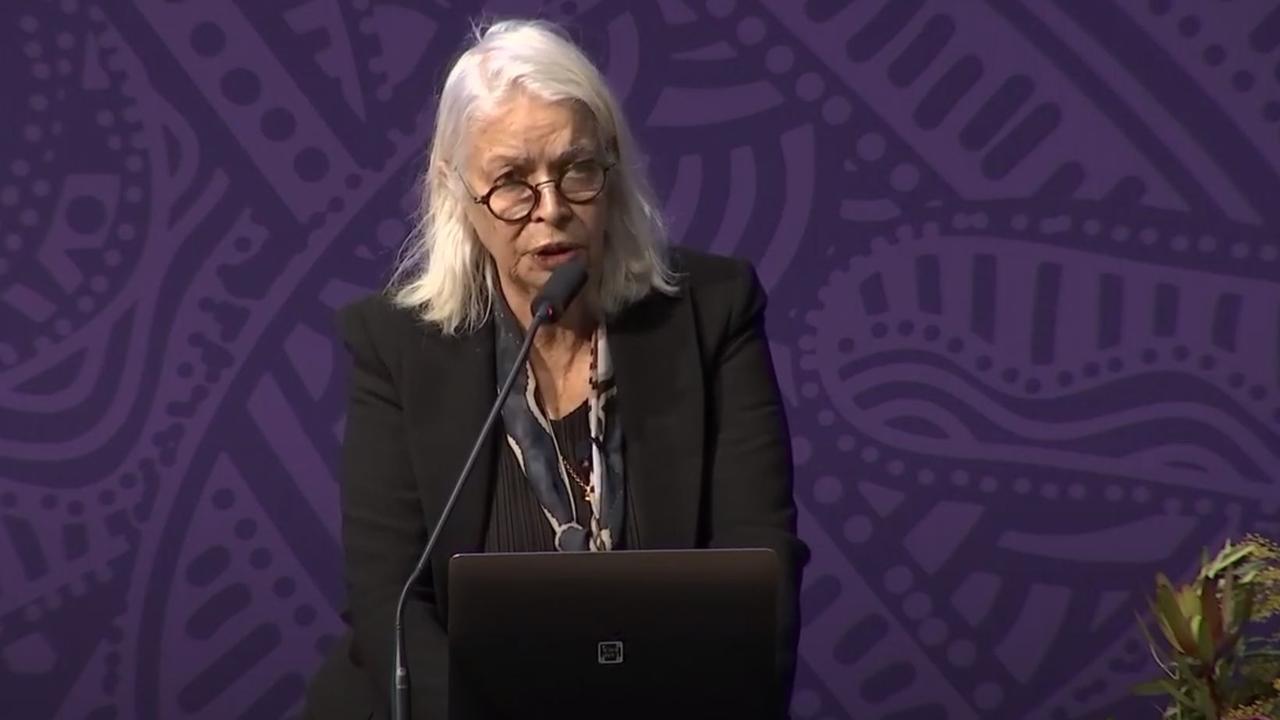
Ms Langton said her comments had been taken out of context and denied believing No voters are racist.
But Mr Mundine seized on the reports during his appearance on NITV last night, insisting Ms Langton had “called Australia a racist country”.
“She has no credibility in this. She needs to get out and actually meet Australians. Australians are not racist. They are incredible people.
“They want to make sure that Aboriginal people have a good life and be part of the Australian opportunities.”
He accused Ms Langton of having “racially abusing Australians” and “causing division”.
Jacobs again interjected to defend Ms Langton, describing her as “a national treasure” and claiming her “word were twisted”.
“I didn‘t say that Australians are racist,” Ms Langton said. “What I said was that the messaging of the No campaign is based on some racialist assumptions.
Marcia Langton and Warren Mundine debated the place of race in the Indigenous Voice to Parliament proposal on NITV’s the Point shortly after the referendum results were announced.
— SBS News (@SBSNews) October 14, 2023
Read more: https://t.co/QKX6I334ZW#Referendum2023#AustraliaVotespic.twitter.com/rhOl4XkJ2c
“I was asking people to think deeply about the racist underpinnings of the No campaign messaging. It‘s not true that I think Australians are racist … It’s not about race at all, and that was my message.”
She thanked the 50,000 Australians who had registered as volunteers with the Yes campaign.
Ms Langton attacked Mr Mundine, saying he had executed “a very Trumpian play”.
“Create racial division, by lying, and then accuse me of being a provocateur,” she said.
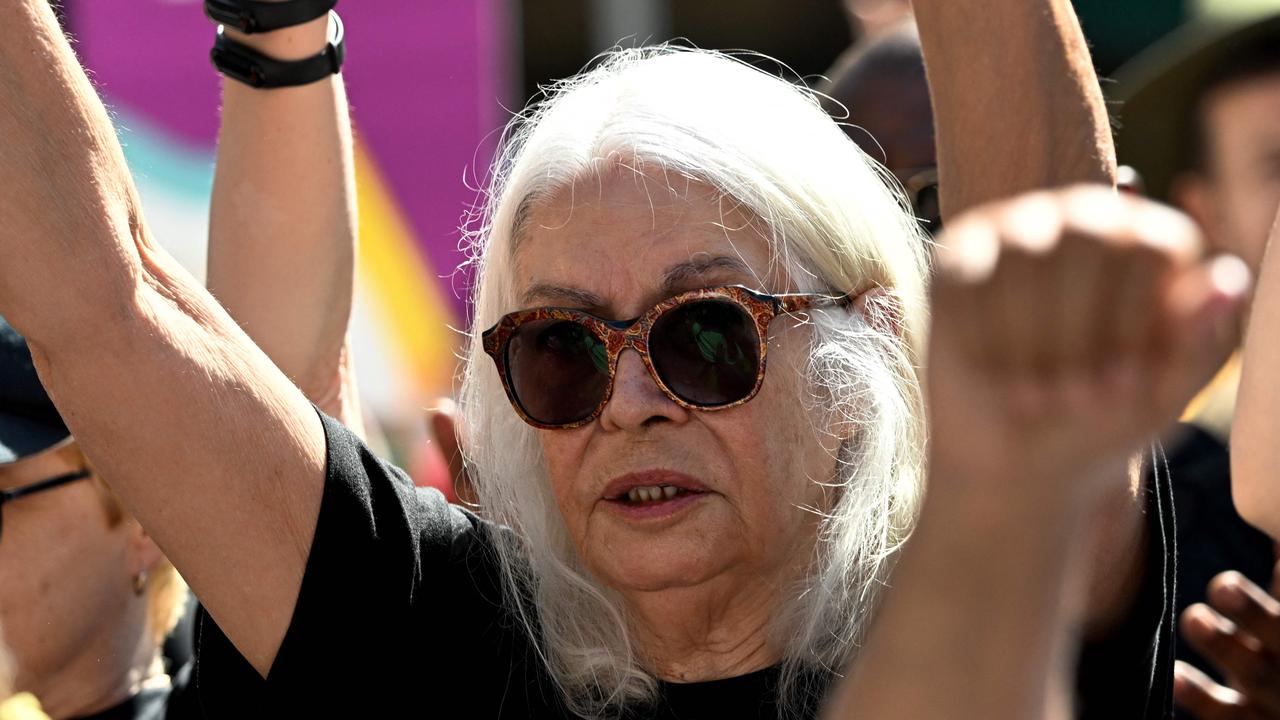
Mr Mundine shot back: “It‘s factual. It’s not a lie. You are the one who has caused division in this country. We are about uniting this country and moving forward and fixing the problems we have in Aboriginal communities.”
Jacobs intervened again, stating: “I can‘t be here in good conscience as a journalist and not put to you, that you are at odds with a majority of First Nations people.”
‘Time for treaty’
The referendum on an Indigenous Voice to Parliament “should never have happened”, independent Senator Lidia Thorpe has said.
Speaking on ABC Radio in Melbourne today, Senator Thorpe, who quit the Greens in order to campaign against the Voice, repeated her demand for a treaty between the Federal Government and Aboriginal and Torres Strait Islander people.
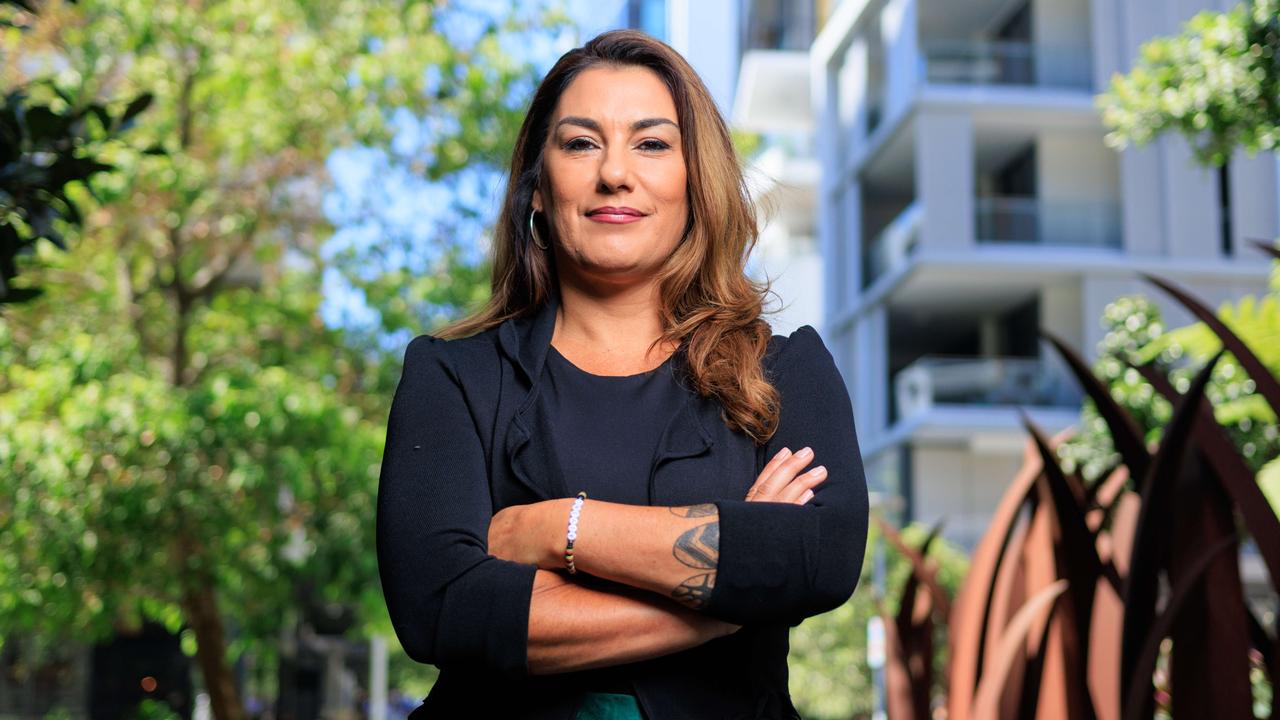
She also said the Blak Sovereign Movement, which she leads, is “at war” with disadvantage, including deaths in custody, First Nations children being in state care, and suicide rates in communities.
“We need to end that war and the only way we can do that is through truth-telling, healing and, ultimately, a treaty because that‘s the only thing left for us,” Senator Thorpe told the ABC.
“And that‘s what will truly unite this nation and have us all come together to celebrate something we all agree on.”
More chances at reconciliation: Gillard
Former Prime Minister Julia Gillard has taken to social media to express her sympathy for First Nations Australians in the wake of the referendum defeat.
And she insisted the No result was not the end of the reconciliation process.
“While the referendum result is not the one I had hoped for, I remain hopeful that all Australians want to heal divisions and create a better future together,” Ms Gillard wrote on X, formerly Twitter.

“The referendum result will be distressing particularly for many First Nations people.
“As we emerge from this chapter in our nation’s story, we must maintain hope that a better future is possible. This was not our only chance at healing.”
Senior politician’s awkward blunder
A pointed attack of Anthony Albanese by Coalition politician Michaelia Cash has been overshadowed by an awkward remark that ignores the contribution of one of her long-time colleagues.
Senator Cash, who is the Opposition’s spokesperson for legal affairs, was on Sky News earlier today when she declared the prime minister needs to take “a good look” at himself.
“This was a referendum Mr Albanese did not need to have,” she said. “Mr Albanese is responsible squarely for putting Australians through the pain that he has done so over the last 12 months.”

Speaking about the work of her colleague Senator Jacinta Nampijinpa Price, who was the face of the No campaign, Senator Cash made a curious claim.
For the first time in Australia’s history, we have someone with lived experience fronting Australia and being able to carry the conversation and quite frankly, we now need to back senator Jacinta Nampijinpa Price in.”
But Senator Cash seemed to have forgotten about her Liberal colleague Ken Wyatt, who was the Minister for Indigenous Affairs when the Coalition was in government, and its spokesperson in Opposition.
Mr Wyatt quit the party earlier this year when Peter Dutton declared the Liberal Party would oppose the Voice.
Areas with largest Indigenous populations vote No
As the failure of the Voice referendum sinks in, attention has turned to analysing the voting patterns in individual towns, regions and cities across the country.
At a national level, based on counting so far, the split is 60 per cent No and 40 per cent Yes. No state of territory went the way of the Yes campaign bar the ACT.
But digging down into the results reveals some interesting trends.

One of the key outcomes thus far is that areas with the highest Indigenous populations have overwhelmingly opposed the Voice.
For example, the massive seat of Lingiari in the Northern Territory takes in Alice Springs and Uluru and has a large Aboriginal population at 40 per cent, according to the 2021 Census.
At the time of writing, 58 per cent of votes have gone to No.
Meanwhile, the Queensland seats of Leichardt and Kennedy, together home to tens of thousands of First Nations people, voted strongly No with 66 per cent and 79 per cent respectively.
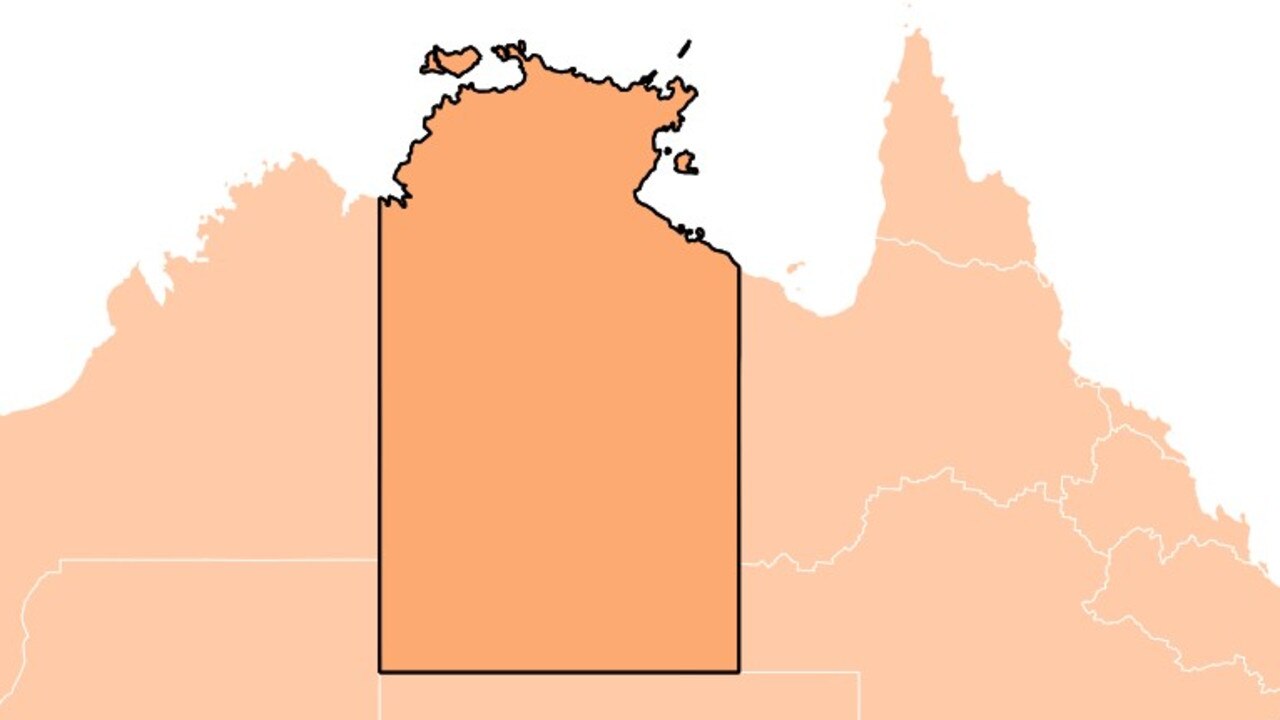
And in Western Australia, 71 per cent in the seat of Durack voted No despite 30,000 Indigenous people calling it home.
New polling emerged during the week showing support among Indigenous people for the Voice was sitting at 59 per cent. Despite that, polling places across the country yesterday were decorated with official Yes signage repeating the claim that 80 per cent of First Nations people were in support.
Where No was strongest
The six electorates with the highest percentage of No voters in the country are all in Queensland.
Overall, the seat with the largest No vote in the country was Maranoa in the Sunshine State’s southern region, where a whopping 84 per cent of people opposed the Voice.

Nationals leader David Littleproud is the local MP and was responsible for the National Party opposing the referendum.
The second highest No vote was also in Queensland, in the rural seat of Flynn, held by Coalition MP Colin Boyce. No scored 83 per cent of votes.
The electorate of Hinkler in the Bundaberg and Hervey Bay region was third with almost 81 per cent of people voting No.
Elsewhere, the mega South Australian electorate of Grey saw 79 per cent of people vote No while Parkes in western New South Wales polled 78 per cent for No.
Some surprising No results include the seat held by Minister for Indigenous Affairs Linda Burney, Barton in Sydney, where 55 per cent of locals backed No.
Where Yes was strongest
Some of the areas with the highest Yes votes are not overly surprising, with Prime Minister Anthony Albanese’s inner-Sydney seat of Grayndler polling 74 per cent for Yes.
Nearby Sydney, held by Environment Minister Tanya Plibersek, saw 71 per cent of people vote Yes.
But the biggest share of Yes voters was in Melbourne, held by Greens leader Adam Bandt, where 78 per cent of people backed the referendum.
You can see how the whole country voted using our interactive results tool.
What would’ve worked
Nationals leader David Littleproud said a simple proposition on recognising Indigenous people in the Constitution would have likely succeeded.
The National Party declared early on that it would not support the Voice to Parliament and Mr Littleproud was a staunch opponent of the campaign.
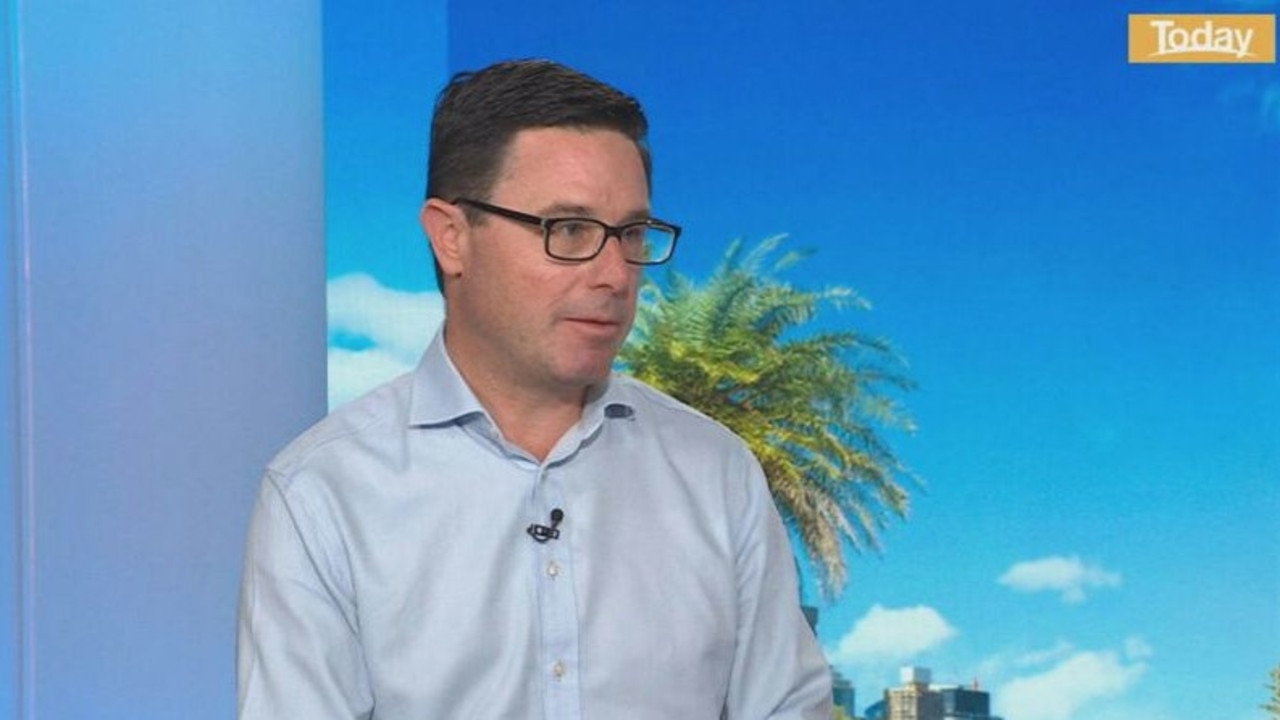
Speaking on the Today show on Channel 9 this morning, he said Prime Minister Anthony Albanese’s approach to the referendum was what caused it to fail.
“If it was just about constitutional recognition, I think it would have been a totally different result,” Mr Littleproud said.
“Australian people always get it right.”
Two things that sank the referendum
There are two major reasons the proposed Voice to Parliament referendum failed, one of the faces of the No campaign believes.
Indigenous activist Warren Mundine spoke on Sunday about the outcome of the historic vote, which saw some 60 per cent of Australians oppose the notion of the Voice.
“The first thing was the mistake [that] people haven‘t learned from history about referendums,” Mr Mundine told ABC News Breakfast.
“Referendums have to have a bipartisan approach, whether you like it or not.”

Early on, the National Party decided to oppose the Voice and the Liberal Party eventually followed suit, leaving Prime Minister Anthony Albanese to wage a lone political campaign.
Speaking on Saturday night, the PM agreed that the lack of bipartisan support was a factor.
Today, Mr Mundine said Mr Albanese’s mistake was failing to “reach out to the other side” to garner consensus on the approach to the referendum.
“Then, the second mistake was that when it became very obvious through the polling and everything, that people wanted more detail about it … if I was in their campaign, I would have changed track and actually gave more detail and talked about that.
“A lot of Australians, who I do know who wanted to vote Yes, but voted No because of those two things.”
‘We take responsibility’
Deputy Prime Minister Richard Marles said the government takes responsibility for the failure of the Voice referendum.
Speaking on the ABC’s Insiders program on Sunday morning, Mr Marles said the buck ultimately stopped with the government.
“We take responsibility, as the prime minister did last night, for the referendum and we take responsibility for the outcome,” he said.
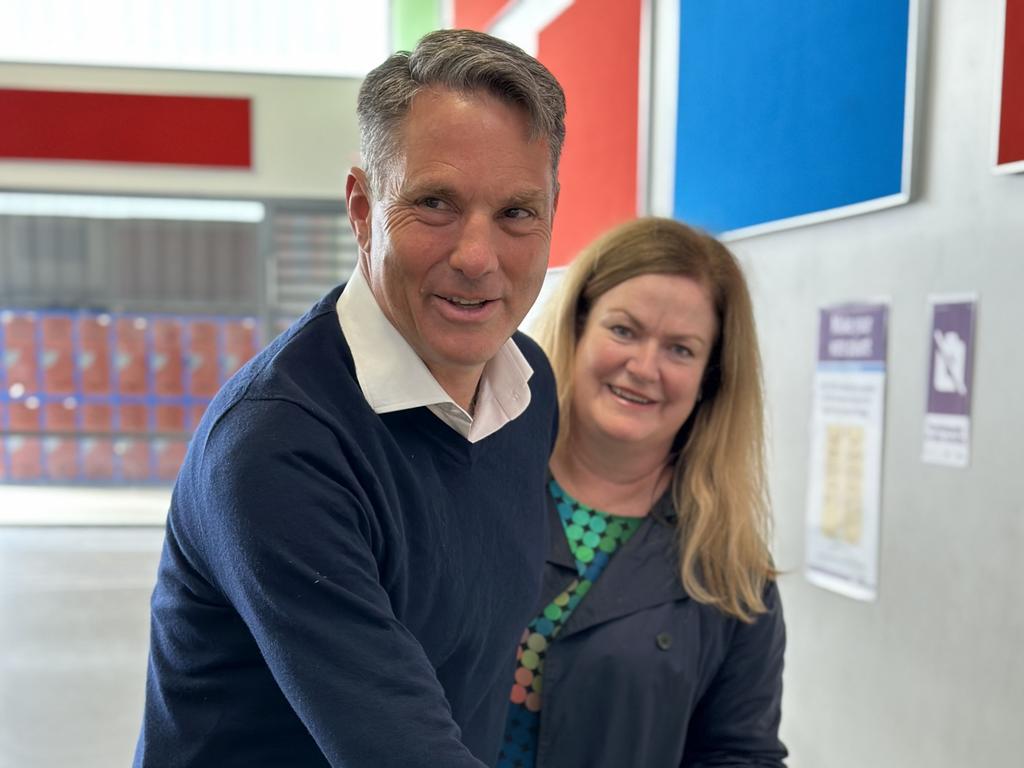
“But I would say this. This referendum was the end step in a process which has been going on for a better part of a decade, in some respects longer.
“I mean, it was the Howard government which first talked about having recognition for Indigenous Australians in the constitution, and it was the Abbott government who said that the way in which we should recognise Indigenous Australians is by asking Indigenous Australians how they want to be recognised in the constitution.
“And that call really led to thousands of meetings which ultimately saw the meeting in 2017 at Uluru of Indigenous leaders which issued the Uluru Statement from the Heart and all we‘ve done, in a sense is bring that to its final conclusion and taken that to the Australian people.”
The role of ‘uneducated’ voters
An Indigenous activist and broadcaster has raised concerns about the lack of awareness of how Australia’s Constitution works.
Speaking on Insiders on the ABC this morning, John Paul Janke said he spoke to voters at the stat of the Voice referendum campaign and realised how little people understood about the nation’s founding document.
“I said, ‘Have you read our Constitution?’ and people just said, ‘No’,” Janke, who hosts NITV’s The Point, said.
“People thought there was freedom of speech in our Constitution. [There are] a lot of uneducated people about our Constitution, with is understandable.
“Then to bring in major change about First Nations people when the majority of people have not met Aboriginal people, they see Aboriginal people on the television and in the media, they get their perceptions from the media … to put those two together, it creates the perfect storm, I think, for misinformation.”
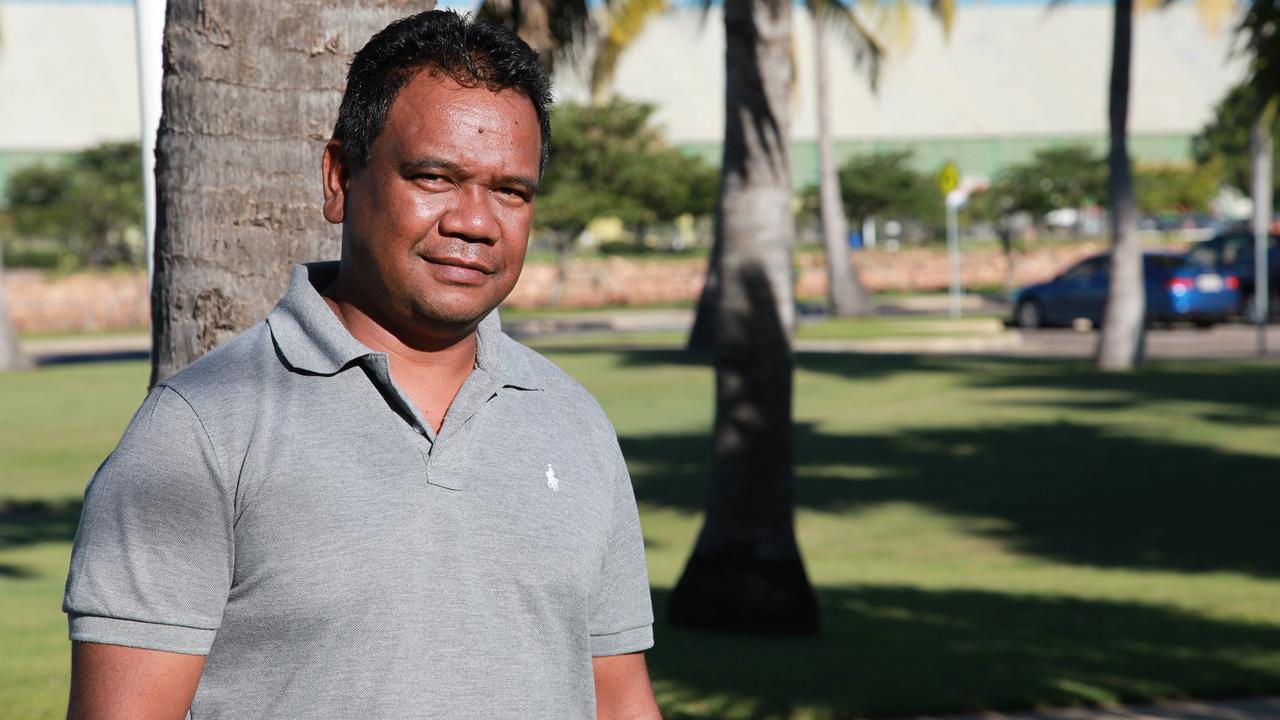
Janke claimed misinformation “played a bit part” in the outcome of the referendum vote.
“I think we can‘t underestimate that. The feedback from Western Sydney was the fear of, ‘I’m going to lose my house. If the Voice gets up, I’m going to lose my house.’ That really played a part.”
Indigenous ‘disunity’ a factor
Journalist and broadcaster Patricia Karvelas has offered her thoughts on why the Yes campaign failed to convince Australians to back the Voice.
Appearing on ABC News 24 this morning, the RN Breakfast host said one of the major issues was that two prominent Indigenous Australians were heading up the No campaign – Coalition Senator Jacinta Nampijinpa Price and conservative Aboriginal advocate Warren Mundine.
“It became really confusing for Australians,” Karvelas said.

“What was able to be successfully constructed by the No campaign is the sense of disunity and as soon as you get disunity, you get people going, ‘Oh, what?’
“One of the biggest things I heard from my text line and from voters – I try to talk to as many where I go, to get a sense of where people were going – and number one thing, what was constantly raised with me from the left to the right, to the people who were largely not interested in left-right politics, [was that] Aboriginal people are against this too.
“As soon as that was a narrative, that stuck, I think this referendum was up against it.”
‘This country has an issue with racism’
Speaking on ABC News 24, Patricia Karvelas said “we’ve got to be honest with ourselves this morning” as a nation.
“I think this country has a real issue around race, racism, and a lack of knowledge on Indigenous Australians,” Karvelas said.
“I think we don‘t know Indigenous Australia. Until we do, until we have, those relationships we will have this issue where we find reconciliation difficult.”
Growing calls for Albo to resign
Several Liberal politicians and conservative commentators are calling for Anthony Albanese to resign in the wake of the referendum.
South Australia’s Opposition Leader David Speers said the Labor Party needed to “make a call” on Albanese’s future today.
“Some people are saying he should resign. He should resign because the damage he has done to our country and to the very fabric of what it means to be Australian is, quite frankly, heartbreaking,” Mr Spiers said.
“The prime minister should think about his future. I don’t think he will resign but there are international precedents there.”
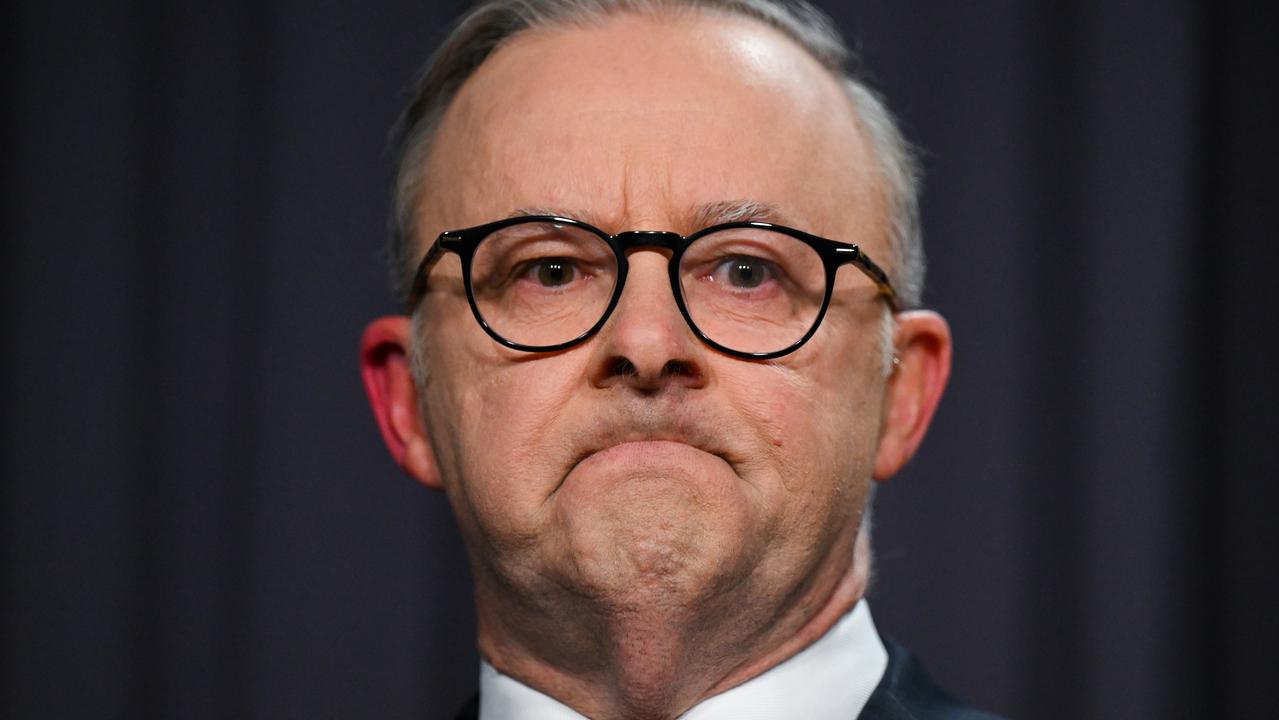
Sky News host Andrew Bolt suggested the Prime Minister “should go” for subjecting Australia to the “poison” of the referendum during a fiery clash over the fallout of the Yes wipe out.
“I just wonder now how he can continue as Prime Minister. He’s put us through this nightmare and wasted nearly $400 million of taxpayers money, putting Australians at each other’s throats. “And unfortunately the poison from all this will survive.”
In The Australian, columnist Simon Benson wrote the consequences for Albanese are “unknown”.
“Failure of the referendum doesn’t necessarily go to fatality of leadership,” Benson wrote. “But the question is whether there is a residual effect that goes to a broader issue of political competence and judgment.
“Is what has been exposed by the Voice reveal something endemic about how Albanese deals with the big issues?”
Mr Albanese attempted to unite the country in a speech on Saturday night, declaring “we are not yes voters or no voters. We are all Australian”.
The PM is ‘damaged by this’
Speaking about the referendum’s failure, ABC political correspondent and host of the program Insiders said the fallout is unclear.
“The Prime Minister is damaged by this, no question, but for how long and where we go to now on tackling Indigenous disadvantage, let alone any form of recognition in the Constitution remains very unclear,” Speers said on ABC News Breakfast.
While politics “back and forth will continue”, Speers said the country needs healing.
“This has been particularly painful for First Nations people in particular.
“The path forward is unclear. The government won‘t rush to say, ‘OK, here is Plan B’ but they will have to ultimately come up with something to deal with the issues that have been exposed and debated over the past six weeks, particularly on closing the gap.”
Racism ‘part of the story’
Speaking this morning about the referendum’s failure, Indigenous ABC journalist and presenter Dan Bourchier said racism is “a relevant part of the story”.
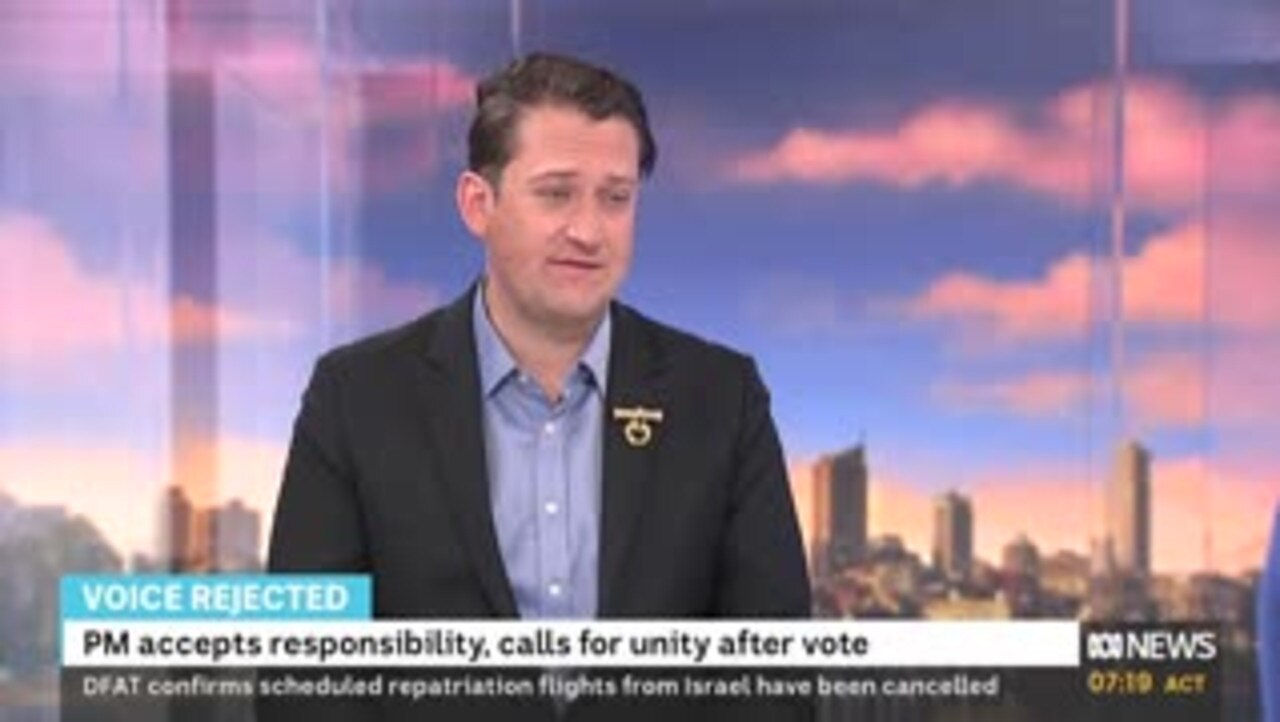
“It is not the whole story,” Bourchier said.
“The vitriol has been completely shocking. There have been things that have been said to others that have chilled me to the core.
There have been things that have been said about myself that have been utterly dehumanising, and that is being seen, I think, by those who are saying it as the normal course of how we have a national debate.”
Gina Rinehart celebrates
Billionaire mining magnate Gina Rinehart reportedly attended an official No campaign celebration in Brisbane last night.
Guardian reporter Eden Gillespie was covering the function, but revealed in a post on Instagram that media were barred from entering.
Instead, they filed stories from outside, where Gillespie spotted Australia’s richest woman as she left the party.
The world reacts
The referendum’s defeat is making headlines around the world, with the New York Times describing it as a moment “crushing Indigenous hopes”.
The newspaper noted the Voice was broadly supported by Aboriginal and Torres Strait Islanders but that “fears and hopes were both overblown”.
In the BBC, it was noted that the outcome will see the prime minister “searching for a way forward” and described the coalition as “resurgent” and “keen to capitalise on its victory”.

CNN noted that the Voice’s promise of change for Indigenous Australians “couldn’t deliver”.
“With a two-letter word, Australians struck down the first attempt at constitutional change in 24 years, a move experts say will inflict lasting damage on First Nations people and suspend any hopes of modernising the nation’s founding document,” the outlet reported.
‘Reconciliation is dead’
Indigenous activist Marcia Langton has declared “reconciliation is dead” in the wake of the Voice referendum’s failure.
The proud Yiman and Bidjara woman spoke to NITV program The Point last night and said the process of reconciliation had been “kicked down the road … [and] been an emollient for what is basically political contempt for us”
“It‘s very clear that reconciliation is dead,” Ms Langton said.
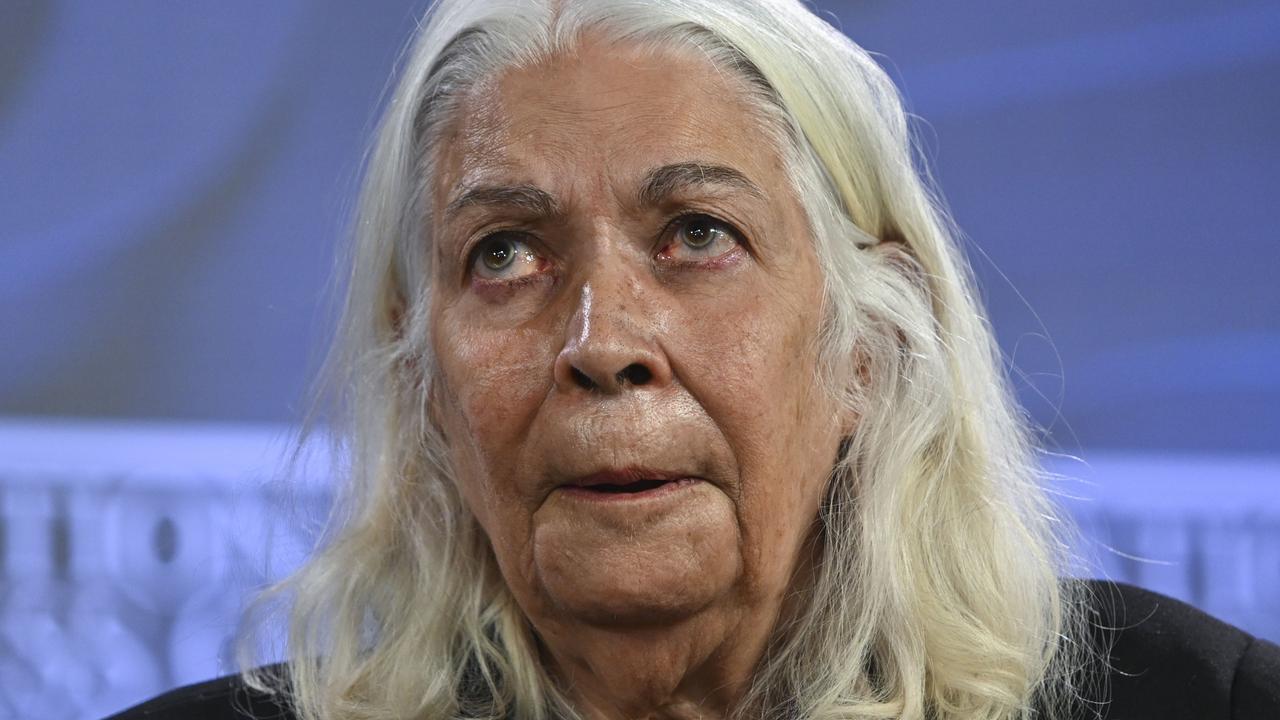
“A majority of Australians have said no to an invitation from Indigenous Australia, with a minimal proposition, to give us a bare say in matters that affect our lives, advice that doesn‘t need to be taken by the parliament.
“I think the No campaigners have a lot to answer for. In poisoning Australia against this proposition and against Indigenous Australia.
“They say they‘re not celebrating, but let’s see how they wheel themselves out in the future.
“This has been a cynical political exercise by the Coalition … They‘ll now be pressing hard for policies that cause us harm.”
Anthony Mundine unleashes
Indigenous former footballer Anthony Mundine, an outspoken opponent of the Voice, has unleashed in an extraordinary rant on social media.
Mundine took to Instagram to celebrate the defeat of the referendum, which he bizarrely claimed would have “enslaved humanity”.
“I’m just disappointed that a lot of people … that I thought that sold out, got paid to push this yes campaign that divided friends and family,” Mundine said in an Instagram story.
“I want Australia to walk as one, white and black … no matter what you are. But this was nothing about that.”
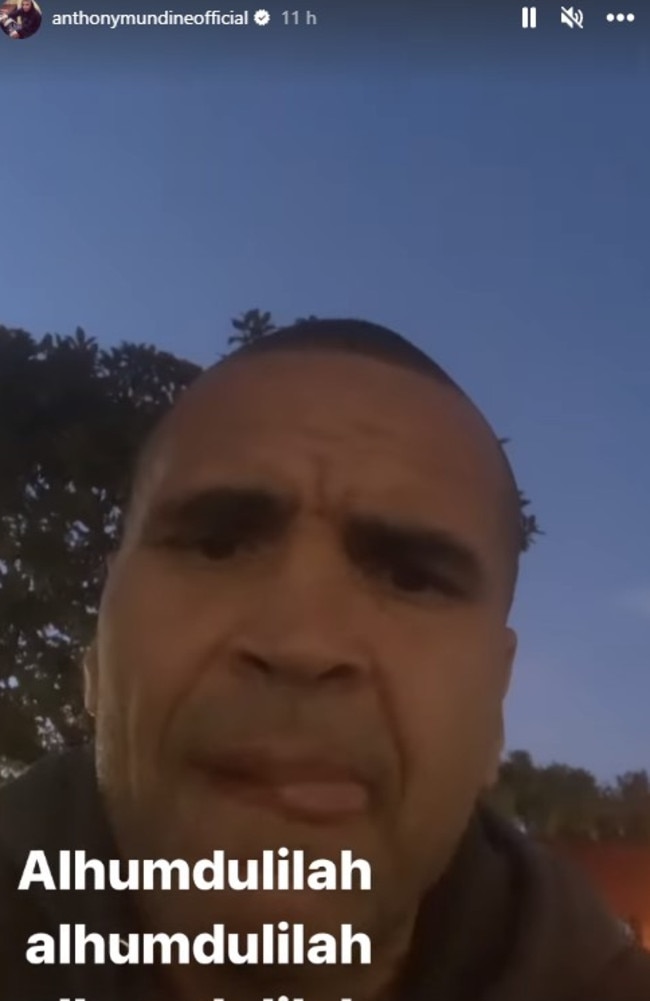
Mundine, who was a world champion boxer following his NRL career, took aim at the Yes campaign for attempting to “use Aboriginal people”.
“They spent millions … they can plan all they want, they can try … and rig it, whatever … this was meant to happen,” he said.
“A lot of people got found out. It’s bad, man. A lot of people sold out for money and greed. I never go against the truth. I am for the human race.”
His reaction was one of many from notable Australians in the wake of the referendum’s defeat.
Yes campaigners call for week of silence
Indigenous leaders are calling for a “Week of Silence” in the wake of the No vote.
Yes campaigner Thomas Mayo issued a lengthy statement on Saturday night, declaring he would stop commenting on the result to “grieve this outcome and reflect on its meaning and significance”.
“Now is not the time to dissect the reasons for this tragic outcome,” the statement read.
“This will be done in the weeks, years and decades to come.
“Now is the time for silence, to mourn and deeply consider the consequence of this outcome.”

